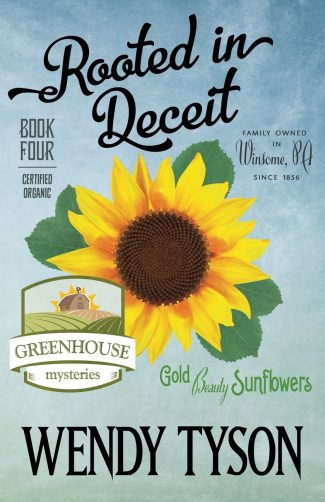When Bigger Isn’t Necessarily Better: The Importance of Short Stories
By Wendy Tyson
September 7, 2018
I recently reread Barbara Kingsolver’s novel The Poisonwood Bible. The first time I read it—about a dozen-plus years ago—I was enthralled by the characters and the sheer breadth of Kingsolver’s undertaking. It wasn’t just the political relevance or the compelling setting, it was the story. Five protagonists, five points of view—and each so vivid and unique. For those two days, I was as captive as the Price daughters, Kingsolver’s richly-drawn protagonists.
This time around, I read the book with an author’s eye, and my appreciation for Kingsolver’s mastery of characterization and point of view only increased. Kingsolver has said she wrote a practice scene from the point of view of three characters, doing it over and over until she got their voices just right. When I stop to think about the diligence and discipline that go into that type of preparation, I’m awed.

Kingsolver’s method for nailing voice inspired my own way of developing secondary characters. I don’t write the same scene from different perspectives, but I write short stories—or even short shorts—from the viewpoint of my minor characters, playing with first- and third-person points of view. For my Greenhouse Mystery series, this exercise has given dimension to the inhabitants of Winsome, and it’s helped me decide which characters might take on a prominent role in future books. It’s enlightening to take these characters out of their normal situations and place them in the spotlight. An added benefit? The short story format gives me the chance to hone specific aspects of craft. The opportunity to practice on a smaller canvas.
As an aspiring novelist, I started my writing journey with literary short stories, back in the day when writers sent paper copies and self-addressed stamped envelopes to magazines and literary journals, often waiting weeks or months for snail mail to deliver a response. I still have a thick pile of rejections in a Manilla file in my office. Over time, the responses became more personalized, and sometimes, acceptance letters (and money!) replaced polite rebuffs.
But with each story, I honed my craft. I’d write the same scene from multiple characters’ perspectives, as Kingsolver did. I worked and reworked language until I’d relentlessly excised every unnecessary word. I focused on imagery, mood, and dialogue. In the short space of a 10-page story (okay, many 10-page stories), I learned how to write.
Don’t get me wrong; short stories are their own art form, not merely a path to novel writing. They’re deserving of respect and present a unique set of challenges. For one, the short story format can be unforgiving. With a novel, you have 400 or so glorious pages within which to work. A few trite sentences or flat descriptions may be overlooked. A slow start, a lagging middle—not always ruinous. In a short story? Every word counts.
In “The Importance of the Single Effect in a Prose Tale,” Edgar Allen Poe talks about the “single effect,” the idea that each aspect of a short story should be carefully crafted to have “unity of effect.” Poe says:
A skillful literary artist has constructed a tale. If wise, he has not fashioned his thoughts to accommodate his incidents; but having conceived, with deliberate care, a certain unique or single effect to be wrought out, he then invents such incidents—he then combines such events as may best aid him in establishing this preconceived effect … In the whole composition there should be no word written, of which the tendency, direct or indirect, is not to the one pre-established design. And by such means, with such care and skill, a picture is at length painted which leaves in the mind of him who contemplates it with a kindred art, a sense of the fullest satisfaction. The idea of the tale has been presented unblemished, because undisturbed; and this is an end unattainable by the novel.
Poe’s words resonated the first time I read Hemingway’s “Hills Like White Elephants.” I was in college, and I can still remember the class, the position of my seat, the sharp profile of the professor reading the words aloud. The sparseness of Hemingway’s language, the mood of the piece, the imagery, the characters—all lent to a sense of wonder. Hemingway’s story—the whole of it, the singular effect—evoked emotion, understanding. For 19-year-old me, it was revelatory. Indeed, Walter Mosely said:
A good short story crosses the borders of our nations and our prejudices and our beliefs. A good short story asks a question that can’t be answered in simple terms. And even if we come up with some understanding, years later, while glancing out of a window, the story still has the potential to return, to alter right there in our mind and change everything.
Hemingway’s story did that for me. Many short stories since have conveyed a truth, an idea, a concept in ways novels cannot.
And now? Well, truth be told, I still love the novel. It’s a grand landscape of fictional work. So much room to explore and develop and experiment. But I love the short story format, too, and lately, I’ve returned to writing short stories to practice craft—and for the sheer fun of it. I recently had the honor of being included in the crime anthology The Night of the Flood (Down & Out Books), and my story “Soap” was included in Betrayed: Powerful Stories of Kick-Ass Crime Survivors (Authors on the Air Press). I wrote a noir piece for a Noir at the Bar event in Philadelphia, and I’m working on a new short story for the follow-up to The Night of the Flood.
Short stories are humbling. Like a beautiful piece of hand-crafted furniture or an amazing dish, they may seem simple but demand incredible skill and focus. For me, short stories provide freedom to explore characters who would never appear in my current series, to push the envelope, venturing into styles and touching on subjects that are new and gripping. And isn’t that what fiction writing is all about? Diving head first into the abyss and maybe, just maybe, having something to say upon return.
Check out John Valeri’s review of Wendy Tyson’s latest, Rooted in Deceit!
Comments are closed.

united healthcare dental phone number http://blogscat.com/a/lorazepam over the counter medicine for strep throat
Well said, Wendy.
Thoughtful article—thank you, Wendy!
Thoughtful article—thank you, Wendy! And congrats on your new book. Can’t wait to read!
Loved this, Wendy; thank you, Criminal Element. And I agree, Wendy, short stories are their own art form. Well said.
This is so interesting. While revising the book I’m working on now, I went back and imagined the scenes from a different character’s point of view to make sure he was true to his character. It’s such a helpful exercise!
Wonderful piece, Wendy. It’s been a while since I’ve written a short story, but now I think I may need to get back into it.